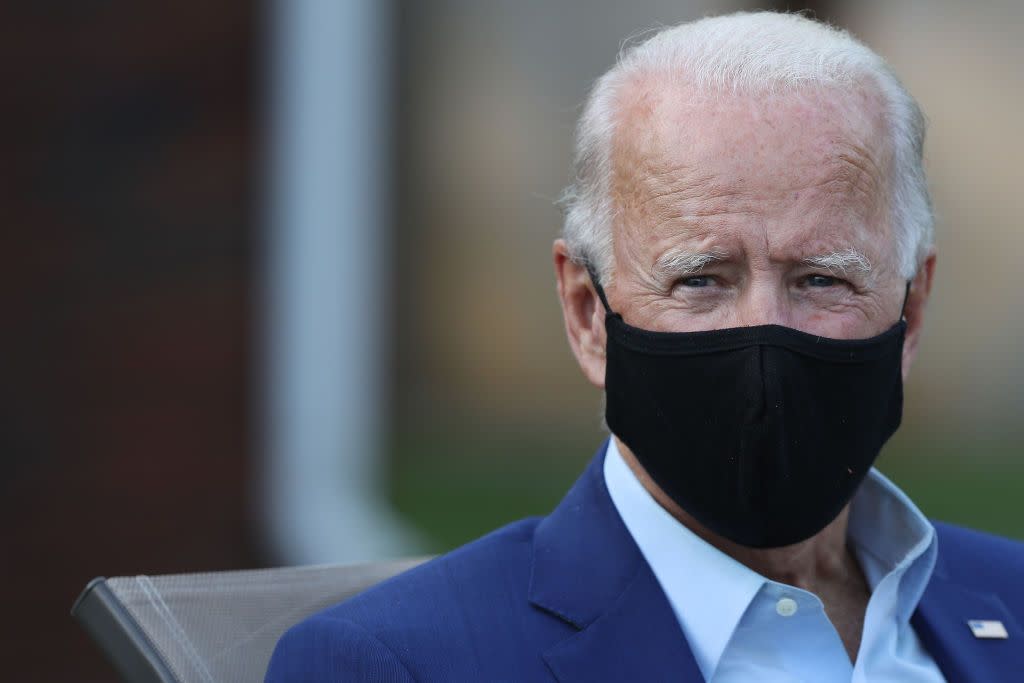
(Bloomberg) -- U.S. stock futures fell, erasing early gains, as investors assessed the details of President-elect Joe Biden’s $1.9 trillion spending-bill proposal that includes $350 billion in aid to states.
Contracts on the S&P 500 Index were down 0.5% as of 6:30 a.m. in London, after rising as much as 0.2% earlier. The underlying index lost 0.4% in the cash session, with investors growing concerned about the path for Federal Reserve policy now that signs of faster inflation are emerging.
The Fed’s largesse and prior federal spending packages worth almost $3 trillion have powered a 70% gain in U.S. stocks from the pandemic lows in March. Biden’s plan -- long telegraphed since his election in November -- is more than double the package approved in late December, and proposes sending $1,400 to qualified individuals. It also calls for increasing the federal minimum wage to $15 an hour.
U.S. stocks have pushed to record after record since the vaccine approvals and Biden’s election in November. His agenda, including ambitious aid and a follow-up plan to spend on projects such as infrastructure, got a boost Jan. 5 when Democrats won control of the Senate.
Vice President Kamala Harris’ vote should help seal Democratic wins on issues that require a simple majority for passage in the evenly split upper house. However, Biden proposals including aid to states and money for health care are likely to require 60 votes, which would appear difficult to achieve.
“Given the distaste Republicans have for state aid, Mr. Biden’s bipartisan hopes will be immediately tested,” Jeffrey Halley, senior market analyst with Oanda Asia Pacific Pte., wrote in a note. “And that is before the remake America bills come through with the almost certain increases in taxes.”
The record climbs in stocks have stretched valuations to levels not seen in two decades, prompting warnings of a bubble that will lead to a rapid selloff. Investors have tolerated them so far because of Biden’s pledge to amp up spending not only on direct aid, but also on fighting the virus and rolling vaccines. His bill sets aside $20 billion for a national vaccine program and $50 billion to expand testing capacity.
Signs of froth abound, though. In a note titled “This Is Ludicrous,” Bespoke Investment Group summed up the recent action. It cited 59 U.S.-listed stocks that are trading at prices that are more than 10 times sales and have more than doubled in the past three months. Stocks currently in that category have risen 760% since March and have a combined market capitalization of $320 billion, according to George Pearkes, global macro strategist at the firm.
“Stimulus is always going to be net positive for near-term growth and profits, but the question is always how much is already priced in,” said Dan Suzuki, deputy chief investment officer at Richard Bernstein Advisors. “There’s more room for stimulus to get priced in from here, but it only adds to the cyclical recovery that will likely take place regardless of whether stimulus gets passed.”
(An earlier version of this story was corrected to reflect the size of the plan in the first paragraph.)
For more articles like this, please visit us at bloomberg.com
Subscribe now to stay ahead with the most trusted business news source.
©2021 Bloomberg L.P.
"stock" - Google News
January 15, 2021 at 11:52AM
https://ift.tt/3sr6tX3
U.S. Stock Futures Decline After Biden’s Spending-Bill Proposal - Yahoo Finance
"stock" - Google News
https://ift.tt/37YwtPr
https://ift.tt/3b37xGF
Bagikan Berita Ini














0 Response to "U.S. Stock Futures Decline After Biden’s Spending-Bill Proposal - Yahoo Finance"
Post a Comment